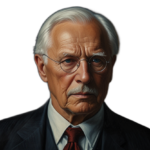(audio available for paid subscribers)

The foundation of all mental illness is the
unwillingness to experience legitimate suffering.Carl Jung
After spending time looking into either Zen or pop nonduality, I feel as if I’ve had my brains scrambled and my energy field frazzled, not so different from spending an hour in a big box store during the holiday rush. (The horror. The horror.) It’s not only jangling but sad-making, and it takes time and quiet and rest to settle back into myself. That’s why I don’t like watching nondual teacher videos or reading about Zen or spending time with other belief systems; their incoherence drags me into muddy misalignment, like turning my dial from clear signal to random static, and it takes time to get myself dialed back in. I’m not a delicate little flower, but the lucid state is finely balanced and when it goes out of whack, it takes time and rest to get back on track.
Log In or Register to Continue
Somewhere, right at the bottom of one’s own being, one generally does know where one should go and what one should do. But there are times when the clown we call “I” behaves in such a distracting fashion that the inner voice cannot make its presence felt.
Carl Jung
Carl Jung was a Swiss psychiatrist and psychoanalyst who founded analytical psychology. He was originally a follower of Freud but later broke away due to differences in their theories. Jung introduced key concepts like the collective unconscious, archetypes, and psychological types (which later influenced the Myers-Briggs Type Indicator). He believed that dreams, myths, and symbols reveal deep truths about human nature. His work has had a huge impact on psychology, philosophy, literature, and even spirituality.
